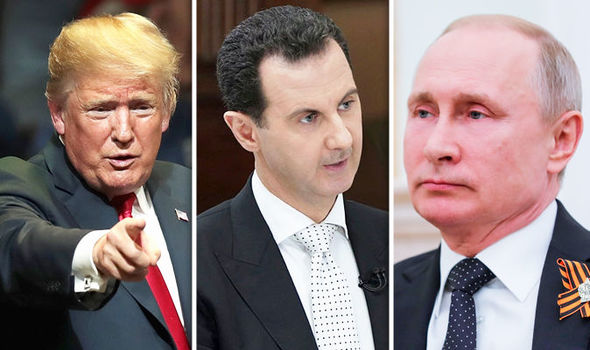Subscribe to get access
Read more of this content when you subscribe today.

In 2012, the US administration closed the American Embassy’s doors in Damascus and, two years later, ordered the Syrian Embassy in Washington to close. However, an exchange of messages continued through the Czech embassy, and the backchannel never closed. President Donald Trump, known for his willingness to strike business deals, decided to take the contacts further with President Bashar al-Assad. In 2017, he sent a military-political delegation to Damascus airport, intending to reach a breakthrough. Other visits followed, along with letters from President Trump that President Assad refused to accept. The question here is: why did the US leak details about an August meeting between Syrian Brigadier General Ali Mamlouk and President Donald Trump’s Special envoy for Hostage Affairs and Senior Director for Counterterrorism Roger Carstens, together with Trump Counterterrorism advisor Kash Patel, in the heart of the capital Damascus?
President Trump moved further than the contact level initially established with the Syrian leadership. He opted for direct negotiation over details to find common ground between the two countries. In the art of diplomacy –the art of the impossible– negotiations are expected to move cautiously when there are essential requests on both sides. Each country will try to “improve” its demands, particularly in this case, when both the US and Syria have many cards to play in the exchange of mutual concessions.
The US has requested that Syria “change its behaviour”. This request was first made in 2003 by US Secretary of State Colin Powell during his visit to Damascus just after the US occupation of Iraq. Powell asked Assad to give up support for Hamas, Hezbollah and Iran.
During the Syrian war, President Assad cut his relationship with Hamas on account of its support for the jihadists and NATO-sponsored regime-change. It is, however, only a matter of time until the relationship between Assad and Hamas is restored; Hamas has changed and is no longer anti-Assad. The group has recognised that it has made a grave mistake and wants to repair the relationship with Assad. Despite Hamas’s support to jihadists Takfiri, Syria has never abandoned the Palestinian cause.
The Syrian-Hezbollah relationship is no longer on the table for Assad. Both Iran and Hezbollah were significant contributors to the unity of Syria in defending their ally and preventing the Syrian government from capitulating to the Jihadists throughout nine years of war.
President Assad has said repeatedly that Hezbollah and Iran are in Syria at the invitation of the Syrian government and will leave when requested to do so. However, Assad is not expected to offer this card to President Trump without a hefty price- including not only US withdrawal from al-Tanf and east-Syria but also recovery of the occupied Golan Heights that Trump unlawfully offered to Israel. Thus, it is certainly not in Syria’s interest to ask Iran and Hezbollah to leave southern Syria and clear the occupied Golan Heights area. It is a question of price and what one side can get from the other over the negotiation table.
Damascus believes that the US leaked information related to the meeting last August to the press as part of a pre-prepared plan to soften the ground for further overt negotiation. The US administration – that hopes and believes it will remain in power for another four years – is preparing the mainstream media– which is hostile towards both Trump and Assad—for such a deal.
President Trump needs highly valid reasons for peace to offer US public opinion and those who wrote reams of articles against President Assad in the last nine years. The search for the six American citizens who the US believes are in Syrian government custody is a valid reason for Trump to negotiate with Assad- to bring US citizens back home. No one in America can contest this objective and, if in exchange the US President has to withdraw forces from Syria, the price is not too high because the US forces anyway are considered occupation forces and their presence is illegal.
Read more of this content when you subscribe today.
0 thoughts on “Trump and Assad: the ongoing negotiation”